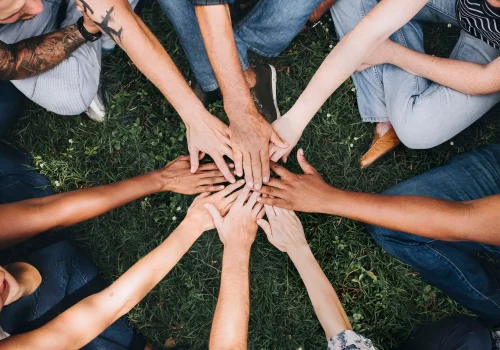
Tá an oibríocht seo á comhchistiú ag Rialtas na hÉireann agus ag an Aontas Eorpach This operation is co-funded by the Government of Ireland and the European Union

Tá an oibríocht seo á comhchistiú ag Rialtas na hÉireann agus ag an Aontas Eorpach This operation is co-funded by the Government of Ireland and the European Union
Tá an oibríocht seo á comhchistiú ag Rialtas na hÉireann agus ag an Aontas Eorpach
This operation is co-funded by the Government of Ireland and the European Union
Education and training boards (ETBs) have a legislative responsibility in relation to youth work in Ireland. This is set out in the Education and Training Boards Act 2013, which states that the function of ETBs, in relation to youth work, is to:
“Support the provision, coordination, administration and assessment of youth work services in its functional area and provide such information as may be requested by the Minister for Children and Youth Affairs in relation to such support, and to assess whether the manner in which it performs its functions is economical, efficient and effective.”
Youth work has enhanced the lives of young people and adults in Ireland for more than 100 years. It was given formal statutory recognition in the Youth Work Act 2001, which defines youth work as:
A planned programme of education designed for the purpose of aiding and enhancing the personal and social development of young people through their voluntary involvement, and which is complementary to their formal, academic or vocational education and training and provided primarily by voluntary youth work organisations.
Youth work is, above all, an educational and developmental process, based on young people’s active and voluntary participation and commitment. Youth work is for all young people, with particular focus on those aged 10-25yrs.
The methods adopted, and the programmes and activities engaged in by youth workers and young people, are very diverse, including:
The values of youth work match the purpose of education and are fundamental to the process, raising the confidence of individuals, their contribution to society, and their value as citizens.
These values are:

Youth work adds value to the lives of all young people, helping them develop lasting skills and attributes; it can particularly affect the lives of young people who are vulnerable or disadvantaged, or are most challenged by school. Youth work can help to build confidence, provide role models, open up new experiences and give young people a sense of belonging.
Youth work is both educational and enjoyable; is fulfilling and fun. Those who participate in youth work have more opportunities and more options for the future.
Youth Work is about adults and young people working together, building community spirit and playing an active role in the development of their communities.
Youth work tackles real social issues; it combats disadvantage; it enhances democratic life and it’s huge value for money!
| Cookie | Duration | Description |
|---|---|---|
| cookielawinfo-checkbox-analytics | 11 months | This cookie is set by GDPR Cookie Consent plugin. The cookie is used to store the user consent for the cookies in the category "Analytics". |
| cookielawinfo-checkbox-functional | 11 months | The cookie is set by GDPR cookie consent to record the user consent for the cookies in the category "Functional". |
| cookielawinfo-checkbox-necessary | 11 months | This cookie is set by GDPR Cookie Consent plugin. The cookies is used to store the user consent for the cookies in the category "Necessary". |
| cookielawinfo-checkbox-others | 11 months | This cookie is set by GDPR Cookie Consent plugin. The cookie is used to store the user consent for the cookies in the category "Other. |
| cookielawinfo-checkbox-performance | 11 months | This cookie is set by GDPR Cookie Consent plugin. The cookie is used to store the user consent for the cookies in the category "Performance". |
| viewed_cookie_policy | 11 months | The cookie is set by the GDPR Cookie Consent plugin and is used to store whether or not user has consented to the use of cookies. It does not store any personal data. |